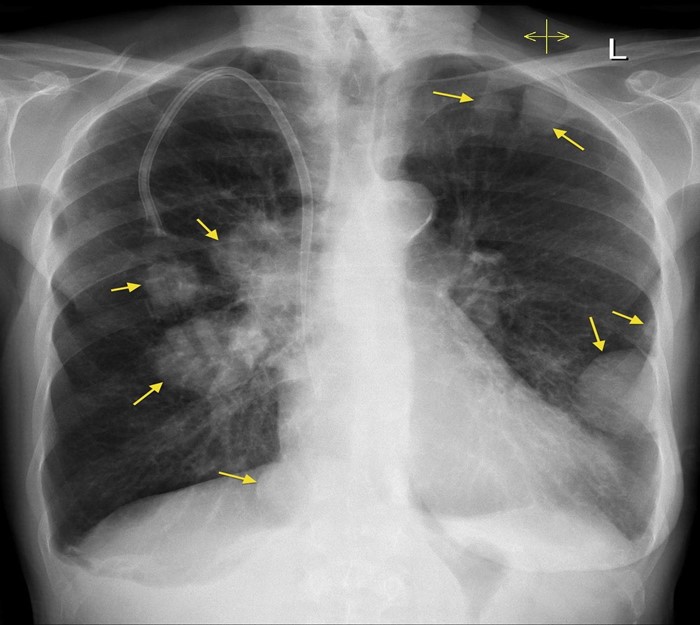The nurse manager overhears an older female nurse complaining to a co-worker about the time being used to attend an in-service session for bioterrorism preparedness. How should the nurse manager respond?
Choose to send another nurse who is more receptive because the older nurse is not interested.
Ask the nurse why she thinks there is no need for an in-service program about these emergencies.
Inform the older nurse that in-service is not optional and her scheduled attendance is mandatory.
Encourage the nurse to share her concerns and discuss ways to prepare for such emergencies.
The Correct Answer is D
Choice A Reason: Choosing to send another nurse who is more receptive is not a good option, as it may create
resentment and conflict among the staff. The older nurse may feel discriminated against or excluded, and the other nurse may feel burdened or pressured. The nurse manager should try to engage and motivate the older nurse to attend the in-service session, as it is important for her professional development and patient safety.
Choice B Reason: Asking the nurse why she thinks there is no need for an in-service program about these emergencies may sound confrontational or accusatory and may put the nurse on the defensive. The nurse manager should avoid making assumptions or judgments about the nurse's attitude or beliefs, and instead try to understand her perspective and address any barriers or misconceptions.
Choice C Reason: Informing the older nurse that inservice is not optional and her scheduled attendance is mandatory may be true, but it may also sound authoritarian or coercive, and may undermine the nurse's autonomy or dignity. The nurse-manager should avoid using threats or ultimatums, and instead try to explain the rationale and benefits of the inservice session, and solicit the nurse's input or feedback.
Choice D Reason: Encouraging the nurse to share her concerns and discuss ways to prepare for such emergencies is the best option, as it shows respect and empathy for the nurse, and fosters a collaborative and supportive
relationship. The nurse-manager should use active listening and open-ended questions, and provide relevant information and resources to help the nurse overcome her fears or doubts, and enhance her confidence and competence.
Nursing Test Bank
Naxlex Comprehensive Predictor Exams
Related Questions
Correct Answer is D
Explanation
Choice A Reason: This is not the first priority because it does not address the client's immediate needs. The nurse should obtain the client's legal records for power of attorney, but this can be done later.
Choice B Reason: This is a good action because it helps relieve the client's pain and discomfort. The nurse should give analgesic medications as needed (PRN), but this is not enough to meet the client's holistic needs.
Choice C Reason: This is not an appropriate action because it may cause harm to the client. The nurse should not discontinue the intravenous infusion without a valid reason and a healthcare provider's order.
Choice D Reason: This is the best action because it respects the client's wishes and provides him with quality end-of-life care. The nurse should ask the palliative care team to speak with the client and offer him emotional, spiritual, and physical support.

Correct Answer is A
Explanation
Choice A Reason: This is the best action because it prevents the spread of infection to other clients and staff. Mumps is a viral infection that causes inflammation of the salivary glands and can be transmitted by respiratory droplets. The nurse should place an isolation cart outside of the room and wear a mask, gloves, and gown when entering.
Choice B Reason: This is not the first priority because it does not address the risk of infection. The nurse should schedule bedside play time with the occupational therapist to promote the child's development and coping, but this can be done later.
Choice C Reason: This is not the first priority because it does not ensure that infection control measures are in place. The nurse should instruct the child's parents about the need for transmission precautions and educate them on how to care for their child at home, but this can be done later.
Choice D Reason: This is not the first priority because it does not prevent the spread of infection. The nurse should assign the child to a room close to the nurse's station to monitor his condition and provide comfort, but this is not a critical intervention.
Whether you are a student looking to ace your exams or a practicing nurse seeking to enhance your expertise , our nursing education contents will empower you with the confidence and competence to make a difference in the lives of patients and become a respected leader in the healthcare field.
Visit Naxlex, invest in your future and unlock endless possibilities with our unparalleled nursing education contents today
Report Wrong Answer on the Current Question
Do you disagree with the answer? If yes, what is your expected answer? Explain.
Kindly be descriptive with the issue you are facing.
